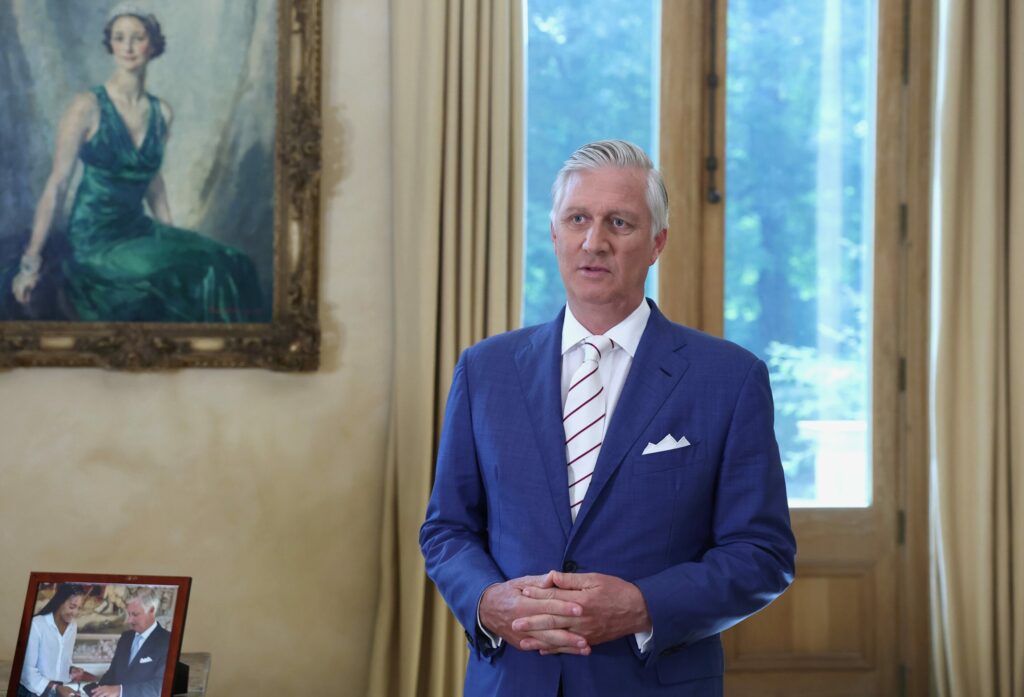King Philippe called for Belgium's political leaders to tackle the "indisputable budgetary emergency" during his National Day speech over the weekend, as latest figures show that Belgium's deficit and debt ratios are still significantly higher than those at a European level.
Belgium’s budget deficit is on target to become one of the largest in Europe this year and is set to grow unless corrective policy action is taken.
Figures published by Eurostat on Monday show that Belgium's budget deficit in the first quarter of 2024 stood at 4.5% of gross domestic product (GDP), while the country's total public debt stood at 108.2% of GDP - both significantly higher than debt and deficit ratios at a European level.
This equates to Belgium owing just over €638 billion in debt by the first quarter of 2024, having overspent by just shy of €26 billion last year alone.
The Eurostat figures show that Belgium has one of the highest debt ratios across the EU (behind Greece at 159.8%, Italy at 137.7%, France at 110.8%, and Spain at 108.9%).
As Belgium's total debt grows, so do the interest repayments, meaning that a growing chunk of the State budget is spent on interest repayments, rather than paying off the principal debt or more importantly, spending on public services and infrastructure.
Falling foul of EU budgetary rules
Last month the European Commission took first steps towards triggering an excessive deficit procedure for Belgium, along with six other Member States that are not meeting minimum EU budgetary rules.
The EU excessive deficit procedure will require Belgium to reduce its deficit by at least 0.5% of GDP per year, either by cutting spending or boosting tax revenues.
However, as the head of Belgium's Central Economic Council has warned, the State will struggle to make savings in the face of demands for increased spending on everything from climate to defence.
Reform needed to tackle 'budgetary emergency'
In his address to the nation over the weekend, to mark Belgian National Day on Sunday, King Philippe noted that the country has gone through "many crises" in recent years, which have been "on the whole, well managed". But the monarch acknowledged the "significant cost, which is now fuelling an indisputable budgetary emergency".
Philippe called for "necessary reforms" in order to safeguard the quality public services that are "essential to the cohesion of our society and the reputation of our country".
He said that the political leaders he has met during the ongoing government formation process are "well aware" that tackling the budgetary emergency requires a "unifying project that also speaks to people's hearts and encourages mutual aid and civic engagement".
In his speech, Philippe said that democracy "remains strong" in Belgium and that the June election results show the possibilities for Belgian political parties and regions to work together, in particular to strengthen the economy.
"Let's work towards an economy that consolidates our country's position in the world – by protecting our production base, by strengthening our competitiveness, by developing our centres of excellence. Let's take advantage of the new European context to re-industrialise. Let's also stimulate synergies between the public and private sectors: their interaction is essential in a number of areas such as education, research and the job market," he said.

